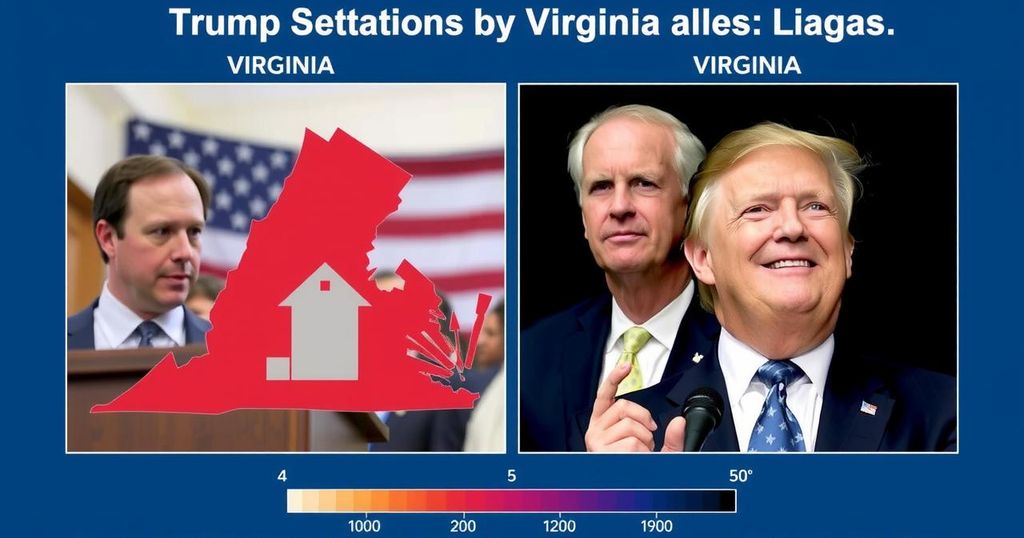Virginia’s Special Elections Set to Determine Statehouse Control and Reflect Voter Sentiments

Virginia’s pivotal special elections will dictate control of the state legislature and reflect voter reactions post-Trump’s victory. Democrats currently hold a slight margin in both chambers but face strong Republican challenges as candidates focus on critical local issues, notably abortion rights, crime, and economic concerns.
On Tuesday, three significant special elections will take place in Virginia to fill vacant seats in both the state Senate and House of Delegates. The outcomes will heavily influence party control within the Statehouse as well as provide insight into voter sentiments following the election of President-elect Donald Trump. Currently, Democrats hold a narrow majority in the Senate at 20-18, following the election of two members to the U.S. House. Meanwhile, the Democrats maintain a slight edge in the House of Delegates with a 50-49 majority, following the departure of Democratic Del. Kannan Srinivasan.
In the race for the state Senate seat in Loudoun County, Republican Tumay Harding competes against Democrat Kannan Srinivasan, while Democrats JJ Singh and Republican Ram Venkatachalam contend to replace Srinivasan in the House. In Goochland County, the Senate race features Republican Luther Cifers opposing Democrat Jack Trammell, who aims to replace U.S. Representative John McGuire. Both Srinivasan and Singh have focused their campaigns on securing abortion rights, amidst a push by state Democrats to fortify this constitutional right, given the significant support for Vice President Kamala Harris in the area during the recent elections.
Conversely, Republican candidates Harding and Venkatachalam concentrate on issues such as parental control, crime, and economic concerns in their efforts to secure victories against Democratic incumbents, emphasizing community issues that resonate with local voters. Notably, Harding stated, “Our schools are faltering and riddled with politics and division, our neighbors have been made victims of illegal migrant crime, and our families are struggling to afford groceries, gas, and housing.” Similarly, Cifers, running on a platform centered on representing community interests over party politics, seeks to connect with constituents by discussing local housing and economic challenges.
Trammell is determined to shift the Republican stronghold of District 10, arguing that the changing demographics and communal dynamics necessitate a competitive electoral process. He stated, “There are factors that are transforming District 10.” These races not only influence the balance of power in Virginia’s legislature but also reflect broader national sentiments as the political landscape evolves after the 2020 presidential election.
The control of the Virginia Statehouse is balancing on the results of three critical special elections. These elections come at a pivotal time as Democrats reassess their standing after federal electoral losses, particularly following President Trump’s victory. The outcome will impact the legislative agenda in the final year of Governor Glenn Youngkin’s administration, particularly as it relates to defining issues such as abortion rights and local governance in areas like Loudoun County and Goochland County.
In summary, the forthcoming Virginia special elections pose significant implications for state legislative control, as both parties strive to secure seats that reflect voter dynamics post-Trump’s electoral win. These races highlight critical issues, including socioeconomic concerns and reproductive rights, revealing how local sentiments align with national trends. Whichever party prevails may shape Virginia’s political landscape well into the future, reflecting the electorate’s prevailing attitudes and priorities.
Original Source: apnews.com






